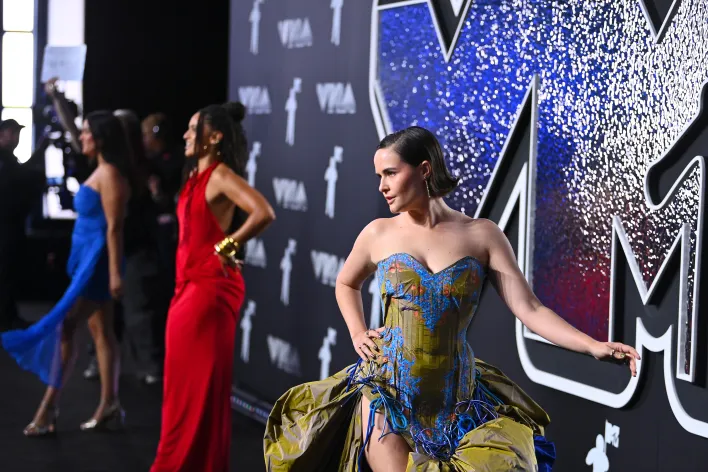Why Is TikToker Kelley Heyer Suing Roblox Over Her Viral ‘Apple’ Dance?
Are you wondering why a TikTok creator is suing Roblox over a viral dance? The controversy centers around Kelley Heyer, a popular TikToker, who filed a lawsuit against Roblox for allegedly using her choreography to Charli XCX’s hit song “Apple” without proper authorization. This lawsuit highlights growing concerns about intellectual property (IP) rights in the digital age, especially for independent creators. With millions of users engaging with platforms like Roblox daily, the stakes are high when it comes to compensating creators fairly for their work. If you’re curious about the details of this legal battle or what it means for the future of online content creation, keep reading.
Image Credits:Roy Rochlin / Getty ImagesThe Viral Dance That Sparked a Legal Battle
Kelley Heyer first posted her now-viral dance routine on TikTok in June 2024. The routine quickly gained traction, riding the wave of excitement surrounding Charli XCX’s summer blockbuster album Brat . Not only did the dance become a cultural phenomenon, but it also caught the attention of the artist herself. Charli XCX invited Heyer to perform the dance live at her New York City concert, further cementing its status as a defining moment of the season.
However, the dance’s popularity extended beyond social media and into the gaming world. Blockbuster games like Fortnite and Roblox capitalized on its success by incorporating it into their platforms as purchasable “emotes”—animations that players can use to express themselves in-game. While Fortnite reportedly obtained Heyer’s permission to license her choreography, she alleges that Roblox failed to secure a similar agreement.
Roblox Under Fire: Unauthorized Use of Creator Content
According to Heyer’s legal team, Roblox proceeded to sell more than 60,000 emotes of the “Apple” dance, generating an estimated $123,000 in revenue. Miki Anzai, Heyer’s attorney, emphasized the importance of compensating independent creators, stating, “Roblox moved forward using Kelley’s IP without a signed agreement. Kelley is an independent creator who should be compensated fairly for her work, and we saw no other option than to file suit to prove that.”
Despite the lawsuit, Heyer and her legal team remain open to resolving the issue amicably. “We remain willing and open to settle and hope to come to a peaceful agreement,” Anzai added.
Roblox’s Response to the Lawsuit
In response to the allegations, Roblox issued a statement reaffirming its commitment to protecting intellectual property rights. “As a platform powered by a community of creators, Roblox takes the protection of intellectual property very seriously and is committed to protecting intellectual property rights of independent developers and creators to brands and artists both on and off the platform,” the company said.
While the statement underscores Roblox’s dedication to creator rights, it does little to address the specific claims made by Heyer. This raises important questions about accountability and transparency in how large platforms handle user-generated content.
What Does This Mean for Creators and Platforms?
The lawsuit between Kelley Heyer and Roblox has far-reaching implications for both creators and gaming platforms. For creators, it serves as a reminder of the importance of understanding intellectual property laws and advocating for fair compensation. For platforms like Roblox, it highlights the need for clear policies and agreements to avoid disputes over unauthorized use of content.
As the case unfolds, it could set a precedent for how similar conflicts are resolved in the future. Will Roblox and other platforms take proactive steps to ensure creators are fairly compensated? Or will legal battles like this become more common as the line between user-generated content and commercial products continues to blur?
Why This Case Matters
The lawsuit involving Kelley Heyer and Roblox is more than just a legal dispute—it’s a reflection of the evolving relationship between creators, platforms, and intellectual property. As gaming and social media continue to intersect, cases like this underscore the urgent need for clearer guidelines and protections for independent creators.
For anyone invested in the future of digital content creation, this story is one to watch closely. Whether you’re a gamer, a TikTok enthusiast, or simply someone interested in the intersection of art and technology, the outcome of this case could shape the landscape of online creativity for years to come.
Stay tuned as we follow this developing story and explore its impact on the creator economy.


Post a Comment